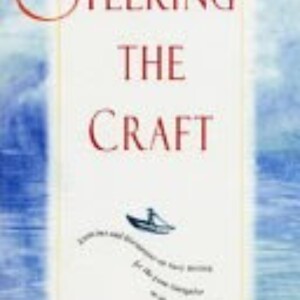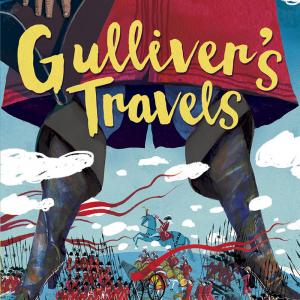

"Steering the Craft: A Twenty-First-Century Guide to Fiction Writing" is a well-regarded manual for writers by Ursula K. Le Guin, published in 1998. Le Guin, an influential figure in the realms of speculative fiction and fantasy, is known for her rich world-building and complex characters. She is celebrated for works such as the "Earthsea" series and "The Left Hand of Darkness," which explore themes of gender, society, and culture.
Author's Background:
- Ursula K. Le Guin was born on October 21, 1929, and passed away on January 22, 2018. She had a writing career that spanned several decades, during which she received numerous awards, including the Hugo and Nebula Awards, among others.
- She was the daughter of an anthropologist and a writer, which profoundly influenced her interest in culture and society. These themes permeate her writing, making her narratives rich in philosophical and sociopolitical commentary.
- Le Guin's work often crosses the boundaries of genre; she is considered both a science fiction and fantasy author, and her narratives frequently incorporate elements of literary fiction.
Book Context:
- Purpose: "Steering the Craft" serves as a practical guide for writers, focusing on the technical aspects of writing fiction. It is aimed at both new and experienced writers seeking to refine their craft.
- Structure: The book is structured as a series of exercises and discussions about narrative techniques, point of view, voice, and language. It emphasizes the importance of revision and understanding the mechanics of storytelling.
- Philosophy of Writing: Le Guin's approach highlights the relationship between the writer and the language, stressing that writing is not just about telling a story but also about how that story is told. She encourages writers to experiment with their prose and to be mindful of their choices.
- Cultural Context: Released in a time when the publishing landscape was evolving, "Steering the Craft" also reflects Le Guin's broader views on the role of literature in society. As a pioneer in fantasy and science fiction, she often challenged conventions and encouraged writers to explore diverse perspectives and narratives.
In summary, "Steering the Craft" not only provides practical guidance for writers but also encapsulates Le Guin's broader philosophical views on creativity and storytelling within the context of the late 20th-century literary environment. Her extensive background and innovative thinking contribute to the enduring relevance and value of this work in the field of writing education.
Chapter 2 Analysis of main characters and plot"Steering the Craft" by Ursula K. Le Guin is not a novel with characters and a traditional plot. Instead, it is a practical guide to writing, primarily fiction, that provides exercises and insights aimed at helping writers improve their craft.
Here are the key components to understand:
- Main Focus: The book emphasizes the importance of narrative voice, point of view, and the rhythm of language. Le Guin explores how these elements affect storytelling.
- Writing Exercises: Le Guin includes numerous exercises designed to challenge writers and encourage experimentation. These exercises are essential for developing skills in various aspects of writing.
- Craft Concepts:
- Point of View: Le Guin discusses the influence of different perspectives on the story and the reader’s experience.
- Language and Style: She emphasizes the importance of precision in language and the essence of style in conveying meaning.
- Character and Plot: While not her primary focus, Le Guin touches on the creation of believable characters and plotting techniques.
- Encouragement of Exploration: Throughout the book, Le Guin encourages writers to take risks and to be mindful of their choices, promoting a deeper understanding of the writing process.
By focusing on these elements, readers can better grasp the practical advice Le Guin offers for honing their storytelling abilities. The book serves as a valuable resource for both new and experienced writers looking to refine their narrative skills.
Chapter 3 Theme Exploration and Analysis"Steering the Craft: A Twenty-First-Century Guide to Sailing the Sea of Story" by Ursula K. Le Guin is a practical and insightful guide for writers, focusing on the craft of storytelling. Throughout the book, Le Guin explores several key themes and topics that are essential for writing effectively. Here are some of the prominent themes:
- Voice and Style: Le Guin emphasizes the importance of a writer’s unique voice and style. She encourages writers to explore their personal narrative voice and how it can shape the story. The distinction between the writer's voice and the characters' voices is crucial, and Le Guin offers exercises to help navigate this aspect of writing.
- Point of View: The book delves into various narrative perspectives—first-person, second-person, and third-person narratives. Le Guin discusses how the choice of point of view can affect the reader's connection to the story, and she provides insights on the impact of omniscient versus limited perspectives.
- Character Development: Character is central to storytelling, and Le Guin underscores the importance of creating complex, believable characters. She discusses how to convey character depth through actions, dialogue, and internal thought processes, helping writers construct relatable and multi-dimensional figures.
- Plot and Structure: Le Guin examines the fundamentals of plot development, arguing that a good plot should serve the story’s themes and characters. She discusses traditional narrative structures and the importance of pacing, conflict, and resolution in keeping readers engaged.
- Imagery and Language: A significant theme in the book is the power of language and imagery in crafting a story. Le Guin, known for her poetic style, encourages writers to experiment with language, using descriptive imagery and metaphor to enhance the narrative and evoke emotions.
- The Role of the Writer: Le Guin reflects on the responsibilities of the writer, including the ethical implications of storytelling. She urges writers to engage with their subjects thoughtfully and to consider the cultural and social contexts within which they write, emphasizing a deeper awareness of the impact stories can have.
- Craftsmanship and Revision: The book stresses the importance of writing as a craft that requires practice and revision. Le Guin provides practical exercises that encourage writers to refine their work, highlighting that the act of rewriting is where much of the magic of storytelling happens.
- Community and Readers: Le Guin acknowledges the relationship between the writer, the story, and the reader. She discusses how audience expectations can influence writing but also argues that writers should write for themselves first, allowing authentic stories to emerge.
- Exploration of Genre: As a prominent figure in speculative fiction, Le Guin explores the boundaries of genre, encouraging writers to push against conventions and definitions. She discusses how genre can shape narrative expectations and the importance of finding one's place within or outside those boundaries.
- The Writing Process: Le Guin’s insights into the writing process illuminate the struggles and joys of creativity. She shares her own experiences and challenges, promoting the idea that writing is both a journey and a discipline.
Throughout "Steering the Craft," Le Guin combines her vast knowledge as a writer with practical tips and thought-provoking reflections on the nature of storytelling. The book serves not only as a guide to writing but also as an inspiration for writers to think deeply about their craft and their place within the literary world.
Here are ten notable quotes from "Steering the Craft: A Twenty-First-Century Guide to Sailing the Sea of Story" by Ursula K. Le Guin. These quotes encapsulate her insights into the craft of writing and storytelling:
- "The writer's job is to make a world that works."
- "We are all storytellers, and we all need a place to tell our stories."
- "Language is the soil in which we plant our stories."
- "A story is a river. The water flows through it, and it can take many different shapes."
- "The art of writing is the art of discovering what you believe."
- "A good story does not just tell; it shows, it reveals, it immerses."
- "To write is to create, to construct a universe where you dictate the rules."
- "Writing is an exploration. You start from nothing and learn as you go."
- "Every story is about change, whether that change is internal or external."
- "A writer must learn to listen, to the world and to the quiet voices within."
These quotes capture Le Guin's mastery of language and her deep understanding of the narrative process. They encourage writers to think critically about their craft and the impact of their words.
Book https://www.bookey.app/book/steering-the-craft
Author https://www.bookey.app/quote-author/ursula-k.-le-guin
Quotes https://www.bookey.app/book/steering-the-craft/quote
Suggested
Youtube https://www.youtube.com/watch?v=elBVnlx0l34
Amazon https://www.amazon.com/Steering-Craft-Twenty-First-Century-Guide-Sailing/dp/0544611616
Goodreads https://www.goodreads.com/work/quotes/717892-steering-the-craft-exercises-and-discussions-on-story-writing-for-the-l
More Episodes
All Episodes>>Create Your Podcast In Minutes
- Full-featured podcast site
- Unlimited storage and bandwidth
- Comprehensive podcast stats
- Distribute to Apple Podcasts, Spotify, and more
- Make money with your podcast












